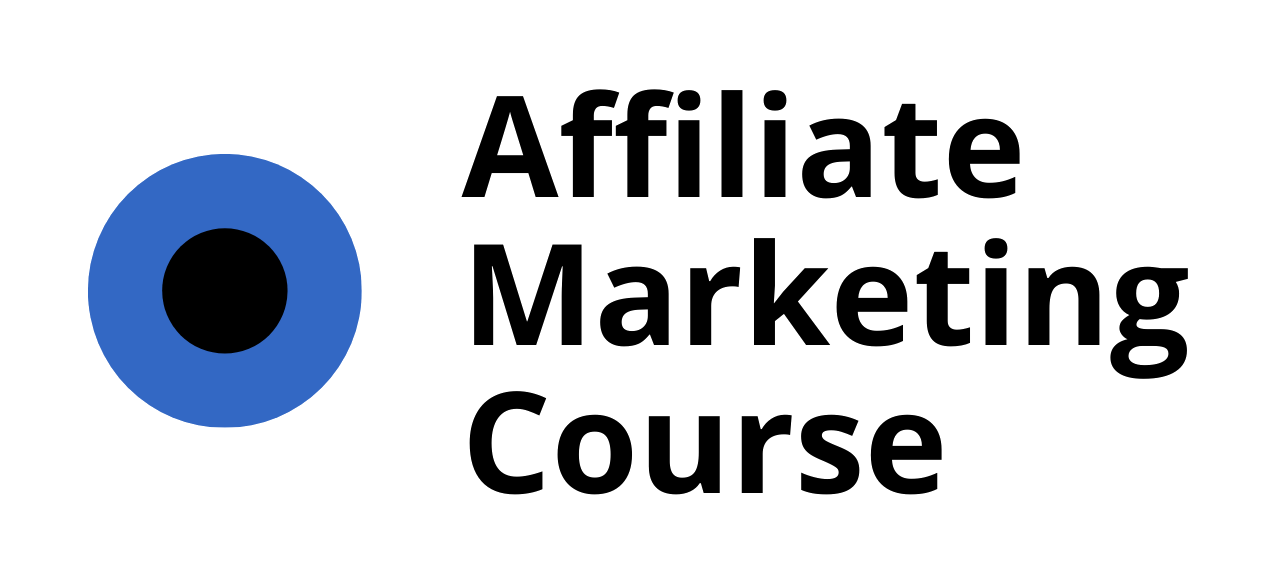The affiliate marketing industry continues to evolve, with each year bringing new opportunities and challenges. As we look ahead to 2024, it’s essential to understand the current state of the industry and its potential for growth. From analyzing market trends and growth statistics to exploring the impact of emerging technologies, this comprehensive guide delves into the latest developments shaping the affiliate marketing landscape. Whether you’re an experienced marketer or new to the field, staying informed about the trends and strategies driving the industry is crucial for staying competitive. Join us as we uncover the key factors influencing the affiliate marketing industry today and what lies ahead in the coming years.

Is the affiliate marketing industry growing?
Yes, the affiliate marketing industry is growing rapidly. According to recent data, the global affiliate marketing market is projected to reach over $8.19 billion by 2030, reflecting a compound annual growth rate (CAGR) of approximately 16.9% from 2023 to 2030. This growth is driven by the increasing reliance on digital advertising and the rise of influencer marketing.
Key Growth Drivers
- Rise of E-commerce : The shift towards online shopping has created numerous opportunities for affiliates to promote products effectively.
- Expansion of Digital Advertising : As more businesses allocate budgets to performance marketing, affiliate programs become a cost-effective channel for lead generation.
- Influence of Social Media : Platforms like Instagram, TikTok, and YouTube have amplified the reach of affiliate marketing campaigns through influencer partnerships.
- Technological Advancements : Tools like tracking software and data analytics enable affiliates and merchants to optimize campaigns more efficiently.
Future Outlook
The affiliate marketing landscape continues to evolve with advancements in AI-driven tools and programmatic ad buying. Brands are increasingly leveraging affiliate networks to scale their marketing efforts, ensuring sustained growth in the industry.
By staying ahead of these trends and continuously refining strategies, businesses can capitalize on the affiliate marketing boom, making it a cornerstone of their digital marketing efforts. To learn more about harnessing the power of affiliate marketing, visit our comprehensive guide at Affiliate Marketing Course .
The Future of Affiliate Marketing
Affiliate marketing continues to evolve, offering endless opportunities for growth and innovation. As digital marketing trends shift, affiliate marketing remains a resilient and profitable channel for businesses and marketers. Here’s what lies ahead for affiliate marketing in the coming years:
Trends to Watch in 2025 and Beyond
- AI-Driven Automation: AI is revolutionizing affiliate marketing by optimizing campaign performance, targeting audiences more precisely, and automating tasks like ad creation and analytics analysis. This allows marketers to scale campaigns efficiently.
- Social Commerce Integration: The rise of social media platforms has created new opportunities for affiliate marketers to leverage visual storytelling and influencer partnerships. Platforms like Instagram, TikTok, and Pinterest are becoming hotspots for affiliate content.
- Programmatic Advertising: Programmatic ad buying is increasingly being used in affiliate marketing, enabling real-time bidding and better ROI tracking. This trend is expected to grow as more sophisticated tools become available.
- Shifting Commission Structures: As competition intensifies, affiliate programs are becoming more flexible. Brands are experimenting with tiered commissions, recurring commissions, and bonus structures to attract and retain top performers.
Strategies for Success in 2025
- Focus on Niche Markets: Specialization is key. Marketers who target specific niches or industries can often achieve higher conversion rates and build deeper relationships with their audiences.
- Utilize Data Analytics: Advanced analytics tools allow marketers to track campaign performance in real-time and make data-driven decisions. This level of insight is crucial for staying competitive.
- Build Trust with Audiences: Consumers are becoming more discerning, demanding transparency and trust from brands. Affiliates that prioritize ethical practices and transparent communication will gain an edge.
- Leverage Mobile Technology: Mobile-first strategies are essential. Optimizing affiliate content for mobile devices ensures it reaches users wherever they are, increasing engagement and conversions.
Challenges to Overcome
- Intense Competition: With more affiliates vying for the same deals, standing out requires creativity and innovation. Marketers must continuously refresh their strategies to stay ahead.
- Regulatory Compliance: Changes in regulations, such as GDPR and CCPA, require careful navigation. Affiliates must ensure they comply with legal requirements to avoid penalties and protect their reputation.
- Ad Fatigue: With increased ad spend, consumers are developing ad blockers. Affiliates must explore alternative channels and strategies to reach their audience effectively.
- Measurement Challenges: Tracking the true impact of affiliate campaigns can be tricky. Marketers need to invest in robust tracking systems and analytics tools to accurately measure success.
Opportunities for Growth
- Expanding into Emerging Markets: Untapped markets in Asia-Pacific, Africa, and Latin America present significant opportunities for affiliate marketers willing to invest time and resources.
- Cross-Promotion with Other Channels: Integrating affiliate marketing with email marketing, SEO, and content marketing can amplify reach and impact. Collaborations with influencers and content creators further enhance visibility.
- Personalization and Dynamic Content: Using AI and machine learning to deliver personalized content and recommendations can significantly boost engagement and conversion rates.
- Focus on Long-Term Relationships: Building lasting partnerships with affiliates and merchants fosters stability and mutual growth. Consistent support and collaboration are key to long-term success.
The future of affiliate marketing looks promising, driven by technological advancements and changing consumer behaviors. By embracing innovation, staying ahead of trends, and focusing on quality, affiliate marketers can continue to play a pivotal role in the digital marketing landscape. Whether you’re just starting out or looking to optimize your existing strategy, affiliate marketing offers endless possibilities for growth and profitability.

What is the 80/20 Rule in Affiliate Marketing?
The 80/20 rule in affiliate marketing is a powerful principle that emphasizes the importance of focusing on a small percentage of high-performing affiliates to drive the majority of your sales. Specifically, it states that approximately 80% of your affiliate program’s revenue comes from around 20% of your affiliate partners.
This rule highlights the efficiency of concentrating efforts on a select group of top-performing affiliates. These partners are likely to bring in the highest returns due to their strong audience engagement, effective marketing strategies, or loyal customer base.
Why Does the 80/20 Rule Matter?
- Focus on High Performers : By identifying and leveraging your top 20% of affiliates, you can amplify your program’s success and reduce costs associated with lower-performing partners.
- Resource Optimization : Allocating more attention and resources to these top affiliates allows for better support, collaboration, and optimization of their marketing efforts.
- Improved ROI : Maximizing the impact of your top affiliates ensures that your affiliate program generates the highest possible return on investment.
Strategies to Implement the 80/20 Rule
- Track Performance : Regularly monitor affiliate performance metrics such as conversion rates, commission earnings, and overall contribution to sales.
- Identify Top Affiliates : Use data analytics to pinpoint which affiliates consistently deliver results and form strategic partnerships with them.
- Engage Top Performers : Provide exclusive deals, personalized support, and incentives to encourage continued high performance.
- Optimize Recruitment : Focus your affiliate recruitment efforts on niches or industries where top performers are more likely to thrive.
Examples of the 80/20 Rule in Action
- Product Focused Programs : If you promote a niche product, a small group of affiliates might dominate the sales, making them your 20%.
- Niche Markets : In highly competitive industries, a few top affiliates can capture the majority of market share.
Optimizing Your Affiliate Program
To fully leverage the 80/20 rule, ensure your affiliate program is structured to attract and retain top talent. This includes offering competitive commission structures, robust tracking tools, and comprehensive marketing support.
Tips for Affiliates Wanting to Maximize Their Effectiveness
- Leverage Data : Use analytics to refine your strategies and focus on the channels and audiences that yield the best results.
- Build Trust : Establish yourself as a reliable resource in your niche to earn the trust of your audience and your affiliate partners.
- Stay Updated : Keep abreast of industry trends and adapt your strategies to stay ahead of the competition.
By applying the 80/20 rule effectively, you can significantly enhance your affiliate marketing efforts and achieve greater success in driving sales and building long-term partnerships.

Trends for Affiliate Marketing in 2025
-
Programmatic Advertising : The rise of programmatic buying allows affiliate marketers to automate ad purchases, enabling better targeting and efficiency. This trend is expected to grow, leveraging data-driven decisions for optimal ROI.
-
Video Content Dominance : With platforms like YouTube and TikTok gaining popularity, video content is projected to dominate affiliate marketing strategies. Marketers will likely invest more in video ads and product demonstrations to engage viewers effectively.
-
Influencer Partnerships : As influencer culture continues to thrive, affiliate marketers are anticipated to focus more on collaborations with micro-influencers, who offer highly targeted and engaged audiences, driving higher conversion rates.
-
Sustainability Focus : Increasing consumer interest in eco-friendly products suggests that sustainable affiliate programs will gain traction. Marketers may prioritize partnerships with brands offering green products, aligning with consumer values.
-
E-commerce Growth : The shift towards online shopping is expected to further integrate affiliate marketing into email campaigns and social media strategies, making these channels central to affiliate efforts.
-
AI and Data Analytics : Advanced AI tools are likely to optimize affiliate campaigns by analyzing performance data and suggesting tailored strategies. Enhanced data analytics will enable affiliates to track ROI and refine targeting more precisely.
-
Mobile Optimization : Given the ubiquity of mobile devices, affiliate links must be optimized for mobile experiences. Mobile-first design will become a standard requirement for effective affiliate landing pages.
-
Transparency and Trust : Brands are increasingly valuing transparent affiliate relationships. Affiliates may adopt clearer disclosure practices to maintain trust and credibility with consumers.
-
Cross-Channel Integration : The convergence of affiliate marketing with social media, email, and other channels will lead to more integrated campaigns. Synergy between these platforms will enhance campaign effectiveness through coordinated messaging and shared data.
These trends collectively suggest a dynamic and evolving future for affiliate marketing, driven by technological advancements and changing consumer behaviors.
Is Affiliate Marketing Outdated?
A common misconception in the digital marketing world is that affiliate marketing is outdated. However, nothing could be further from the truth. Affiliate marketing remains a vibrant and highly effective strategy for both businesses and marketers in 2025 and beyond.
Why Affiliate Marketing Remains Relevant
- Rising Digital Shopping Trends: With more consumers shifting to online shopping, affiliate marketing offers a unique way to tap into this growing market. Platforms like AffiliateMarketingCourse.biz highlight the importance of leveraging digital channels to reach audiences effectively.
- Mobile Commerce Growth: Mobile devices continue to dominate the shopping landscape, making affiliate marketing via apps and mobile platforms increasingly important. This trend is expected to drive significant growth in the affiliate marketing industry.
- Social Media Influence: Platforms like Instagram, TikTok, and Pinterest have become hotbeds for affiliate marketing due to their visual nature and massive user bases. Marketers can now showcase products in creative ways that resonate with audiences.
- Content Creation Boom: The rise of content creators and influencers has opened new avenues for affiliate marketing. By collaborating with these creators, businesses can promote products in authentic and engaging ways.
The Evolution of Affiliate Marketing
affiliate marketing has evolved significantly over the years, adapting to changes in consumer behavior and technological advancements. Today’s affiliate programs are more sophisticated, offering better tracking tools, higher commission rates, and performance-based incentives.
Key Players in the Affiliate Space
While there are many competitors in the affiliate space, none compare to the comprehensive offerings of AffiliateMarketingCourse.biz . Our platform provides everything needed to succeed in affiliate marketing, from education to tools and resources.
Future Outlook
As e-commerce continues to expand and new marketing channels emerge, affiliate marketing will play a pivotal role in driving business growth. At AffiliateMarketingCourse.biz , we are committed to helping our members stay ahead of these trends and capitalize on new opportunities.
Whether you’re a seasoned marketer or just starting out, affiliate marketing offers a cost-effective and scalable way to achieve your business goals. Don’t let outdated beliefs hold you back—join the affiliate marketing revolution today!
Explore Our Courses | Stay Updated with Industry Insights

What is the Life of an Affiliate Marketer?
An affiliate marketer’s life is a dynamic blend of creativity, strategy, and relentless effort. This career path offers unparalleled flexibility but requires dedication and a proactive approach to succeed.
The Daily Routine
A typical day in the life of an affiliate marketer often revolves around:
- Morning Routine: Starting early to leverage the day’s productive hours, affiliate marketers may engage in research, planning, and brainstorming sessions to identify profitable niches or products to promote.
- Content Creation: A significant portion of the day is spent crafting high-quality content such as blog posts, product reviews, tutorials, and social media updates. This content serves as a platform to showcase expertise and drive traffic to affiliate links.
- Strategic Promotions: Throughout the day, affiliate marketers experiment with various promotional tactics, including email campaigns, social media ads, influencer collaborations, and SEO optimizations to maximize visibility and conversions.
- Analytics and Optimization: Regularly monitoring performance metrics, such as click-through rates, conversion rates, and earnings, allows affiliate marketers to refine their strategies and improve results.
- Networking and Collaboration: Building relationships with other marketers, brands, and influencers is crucial. This often involves attending webinars, joining forums, and participating in mastermind groups to gain insights and opportunities.
- Wind-Down: By evening, many affiliate marketers review their day’s achievements, plan tomorrow’s tasks, and relax to recharge for the next day.
Challenges Faced
While rewarding, affiliate marketing presents several challenges:
- Competition: Standing out in a crowded space requires continuous innovation and the ability to adapt to changing trends.
- Building Trust: Establishing credibility with audiences takes time and consistent delivery of valuable content.
- Continuous Learning: The field evolves rapidly, necessitating ongoing education and adaptation to new tools, platforms, and strategies.
- Financial Uncertainty: Earnings can vary widely based on factors like traffic, conversion rates, and affiliate program terms.
Strategies for Success
To thrive as an affiliate marketer, focus on:
- Niche Selection: Choose industries or niches that align with your expertise and have a ready audience.
- Content Quality: Consistently deliver value through informative and engaging content to build trust and attract loyal followers.
- Monetization Strategies: Explore various affiliate programs and networks to maximize earning potential while adhering to ethical standards.
- Diversification: Don’t rely on a single source of traffic or income. Build multiple streams of revenue through different platforms and strategies.
- SEO and Traffic Generation: Invest in optimizing content for search engines and driving organic traffic to increase visibility and conversions.
Conclusion
Life as an affiliate marketer is both challenging and fulfilling. It requires passion, resilience, and a commitment to growth. With the right strategies and continuous effort, it’s possible to build a thriving career that offers financial stability and personal fulfillment.




0 Comments